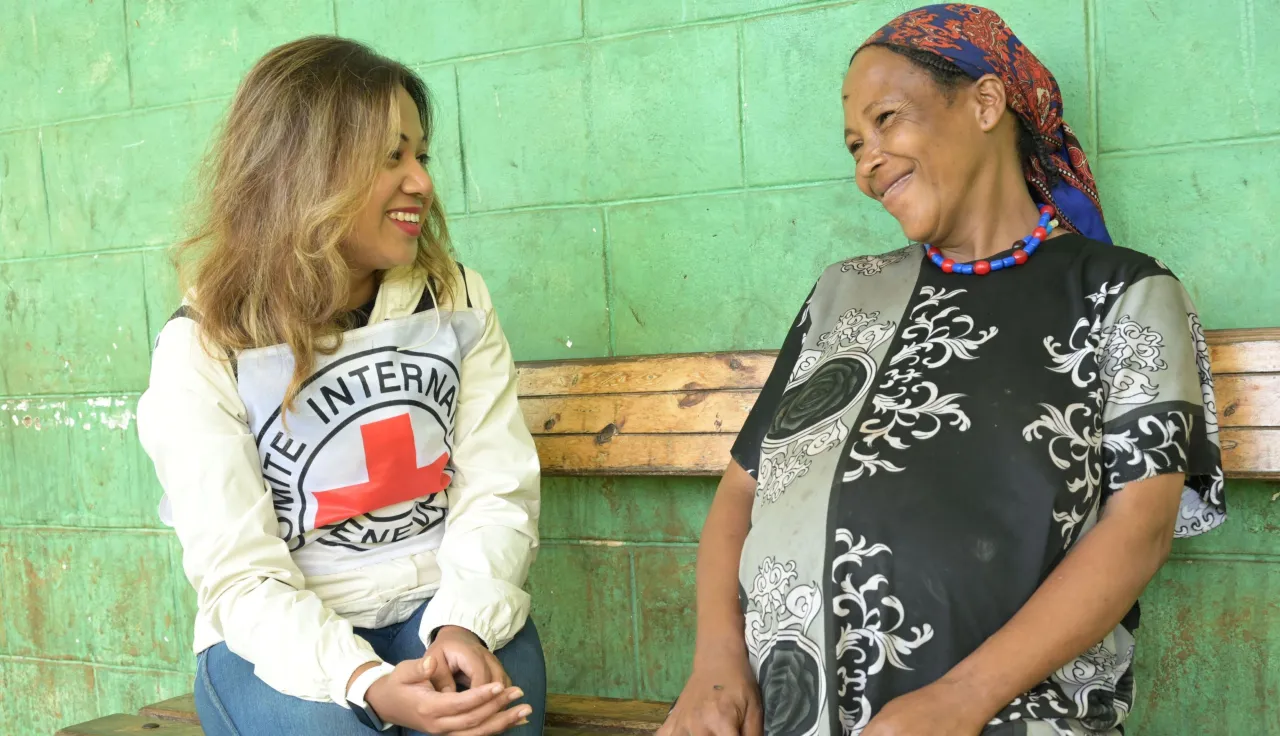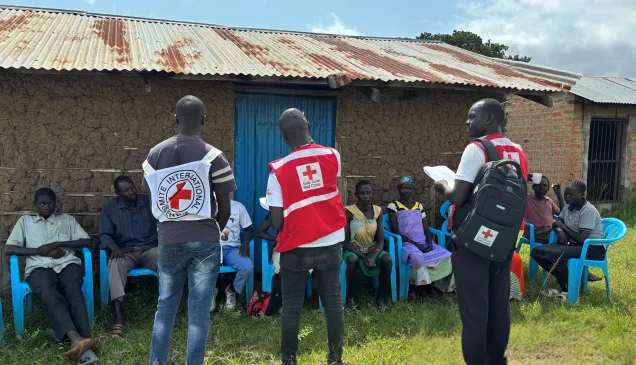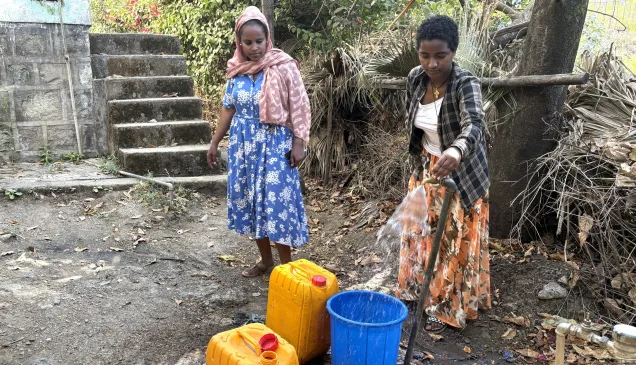Ethiopia: A personal account on helping affected communities in Oromia

The conflict in Oromia has deeply affected communities’ daily lives, particularly in the western part of the region, not far from the borders with Sudan and South Sudan. Arpita Mitra, an ICRC delegate from India, shares insights from her 18 months as field team leader in the West Wellega and Kellem Wellega zones.
“I recall the first time we helped displaced communities from seven villages, in an area called Mana Sibu, in West Wellega. Amidst the hustle and bustle of the crowd collecting their sheeting, blankets and solar lamps, I saw a frail old man barely able to walk, who patiently queued up to receive his items. Wearing his tattered brown suit from the Sunday Church, he sat down on his large jute bag after managing to carry the items away from the crowd. Then he smiled and waved at his five children to come and share the joy – the joy of not having to spend yet another rainy season in the cold weather. The sight of the frail man sheltering his five children in his arms brought tears to my eyes. My colleague and I exchanged glances and, at once, realized that this was precisely the reason why we do what we do. In that split second, all the strenuous periods of planning, logistical challenges, security risks and uncertainties made absolute sense.
West Wellega is one of the biggest administrative districts of Oromia. It was once known for its rich resources, fertile farmlands and thriving markets. But things have changed. People have been repeatedly displaced due to the security situation: they leave behind their homes, possessions and dreams. The ongoing fighting hasn’t spared schools, water points, health facilities or religious institutions; all have been significantly damaged or even destroyed. The ICRC is the only organization operating in some of these hard-hit areas. This brings an immense sense of responsibility, together with challenges to manage the expectations of the affected communities.

Between July-August 2024, the ICRC visited the rural interiors of Mana Sibu woreda and assisted over 2,000 families with cash and essential items.
As much as they need material support, perhaps more importantly, communities need safe and timely access to healthcare. This is far from a given in this conflict-affected zone. Protecting people’s access to health services is one of our key efforts. In mid-2024, when we initiated our medical response crossing frontlines from towns such as Begi and Mendi to the rural kebeles, the Primary Healthcare Centers in these areas looked abandoned. At that time, I remember passing through several roadblocks to reach these health facilities with our medical supplies and finally engage with the health staff and communities there. Today, thanks to the ICRC’s support, some of these remote health facilities have resumed their services, catering to over 50,000 people and 100 patients a day, with a focus on critical maternal and childcare needs.
As the team leader, an important part of my job is to smile. As simple as it sounds, being nice and caring is critical in an environment highly polarized between those involved in the fighting. Trust is hard to come by here, even with communities who are stranded in-between them. The first time we visited some of the rural parts of Mana Sibu, we found entire villages empty, as people would run and hide at the sound or sight of vehicles.

Arpita (left) and field officer Simon (right), carrying out a session on the ICRC's role and humanitarian rules with militia members in Gaba Kemisa, West Wellega, Oromia region.
Our unique role as intermediaries engaging in dialogue with those involved in the fighting has helped to ease people’s movements between the rural interiors and towns. Today, beneficiaries of our distributions can display ICRC vouchers at the checkpoint to enter Mendi town and collect their cash support. Such an event was almost unthinkable a few months ago. Most of these families have used our assistance not only to meet their immediate needs of food and shelter, but also to invest in income-generating activities. Some grow crops, others start a small shop, so they can bounce back from their period of vulnerability.
Yet as my mission draws to a close, I can see that the humanitarian concerns in Oromia will last for a long time. For every weapon-wounded person we successfully supported with a wheelchair or pair of crutches, there are still several others whose lives collapsed due to a bullet wound. For every survivor of sexual violence who we successfully referred or transferred to a health facility, there is someone we could not save on time. This is a troubling reminder that we have our limits.
Protecting communities is of primary importance in such a situation of violence. Knowing this strengthens my resolve to keep working despite difficult circumstances, for the sake of the vulnerable people who yearn for a better tomorrow.”



